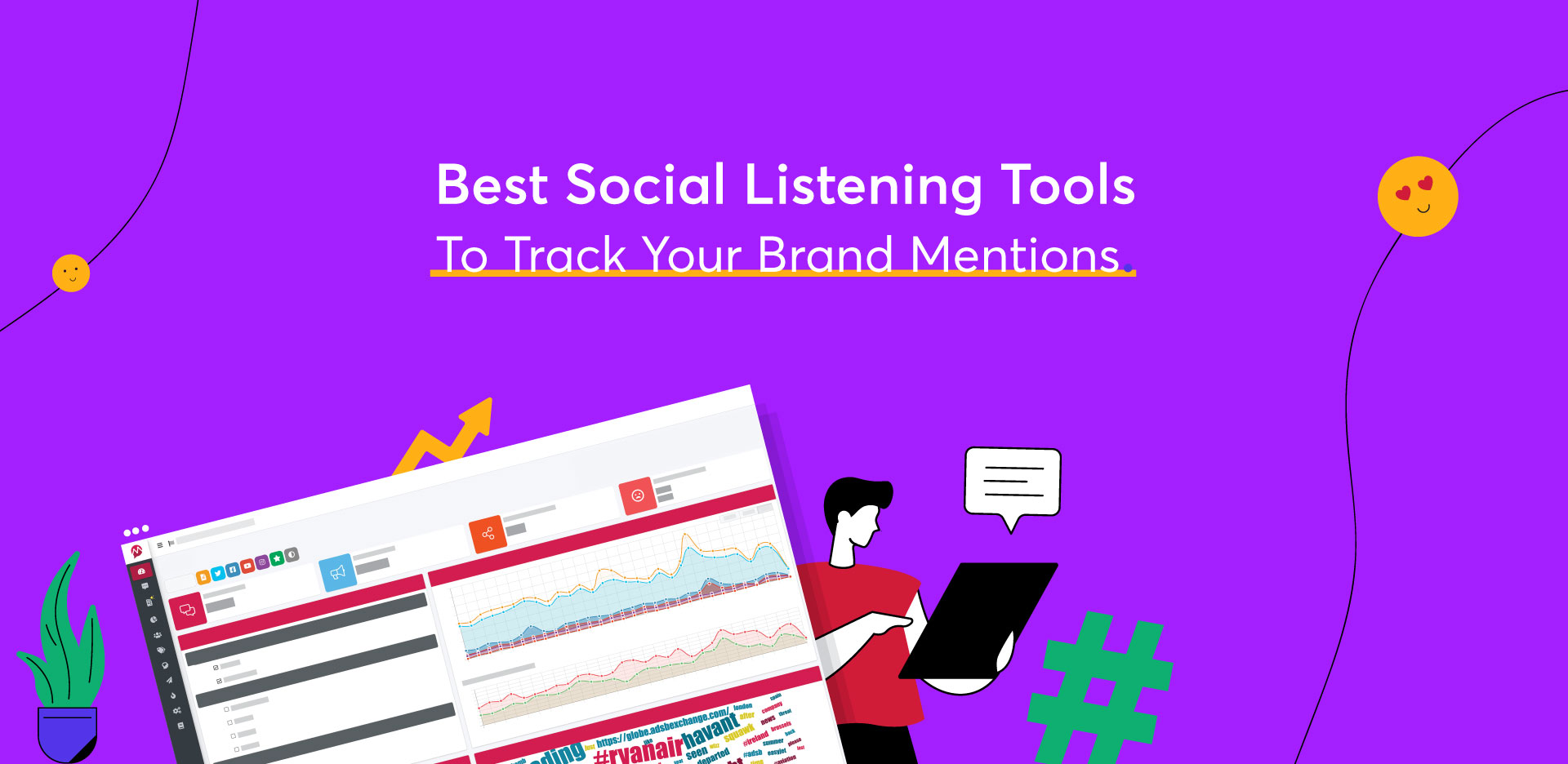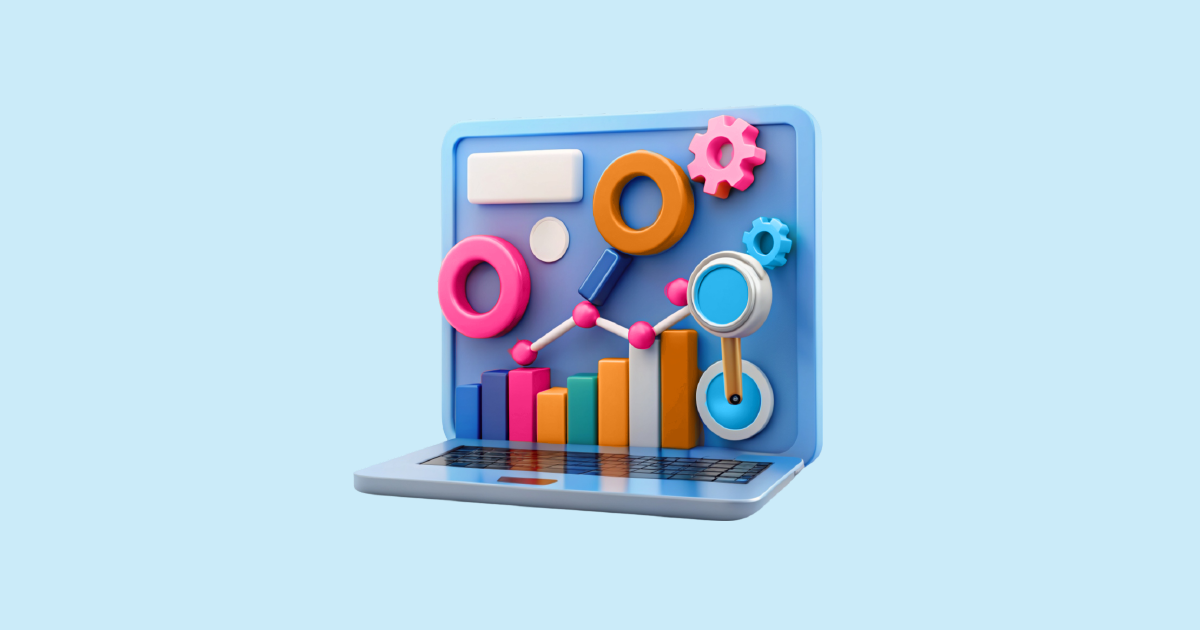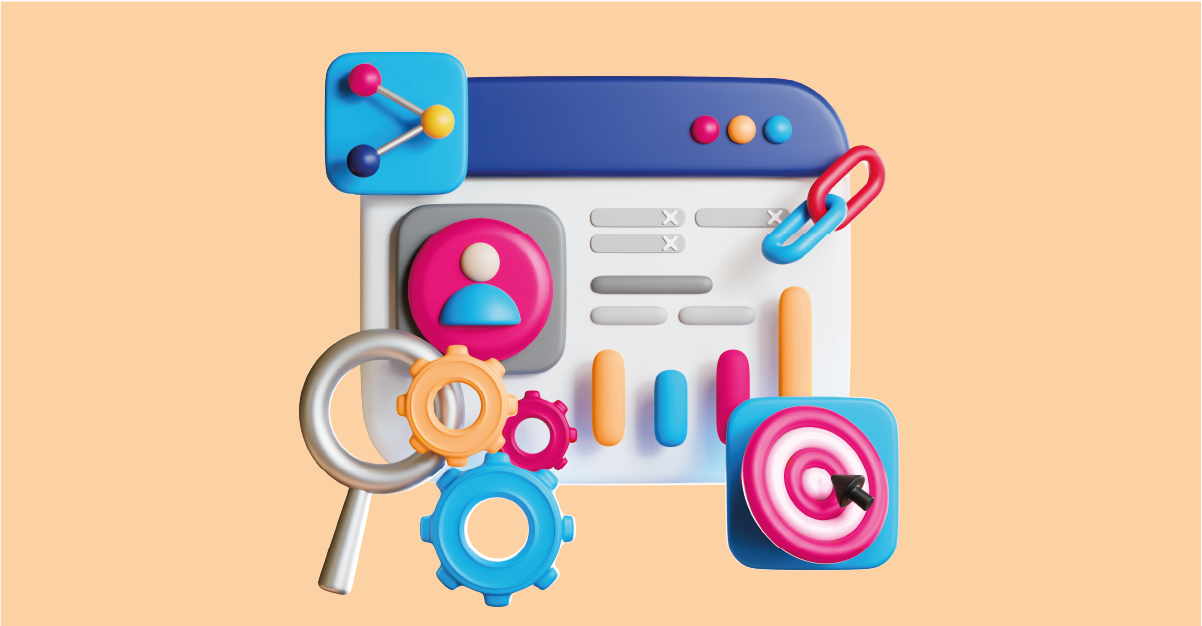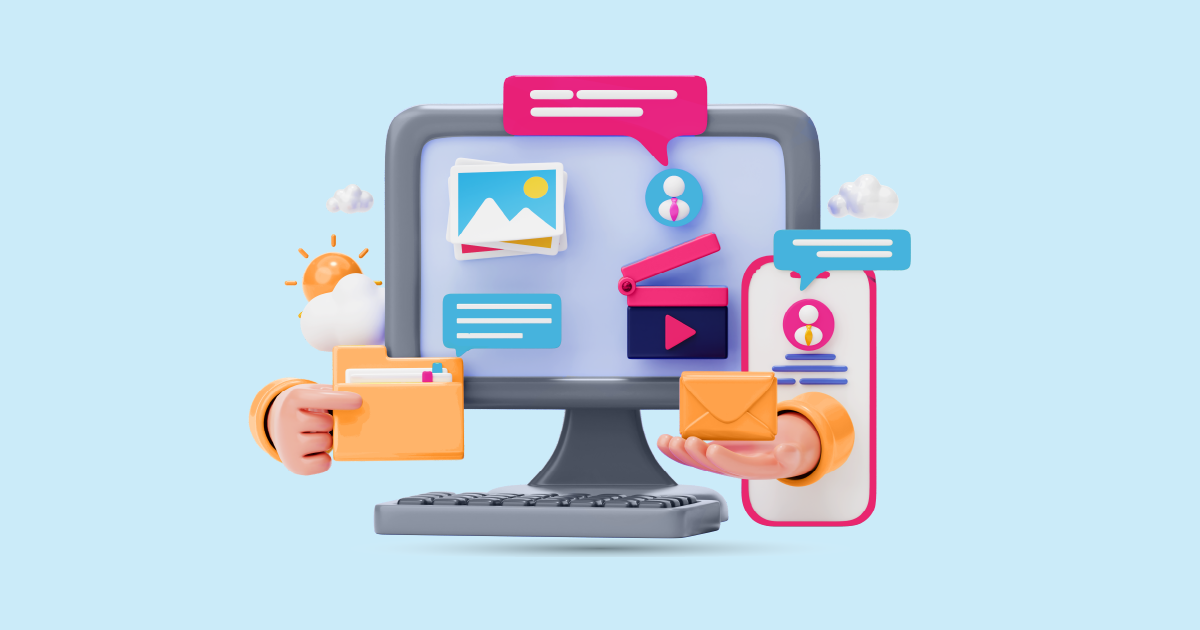In today’s digital age, understanding your audience and keeping tabs on their conversations across various social media platforms is crucial for any business’s success. The best tools for social listening involve tracking online conversations about your brand, industry, competitors, and relevant topics, providing insights that help shape social media marketing strategies and enhance engagement.
Best Tools for Social Listening
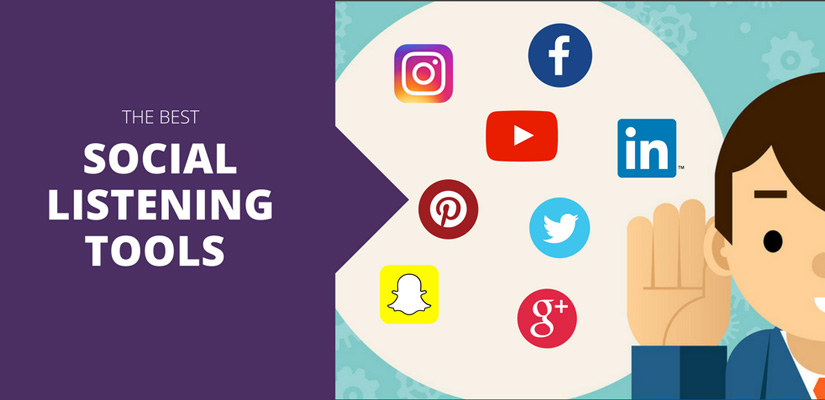
1. Mention
Mention is a powerful social listening tool that provides real-time monitoring across various platforms, including social media, blogs, forums, and news sites. Its intuitive interface and customizable alerts make it a favorite among businesses of all sizes. Mention’s ability to analyze historical data and track specific keywords makes it particularly valuable for ongoing brand monitoring.
2. AIM Insights
AIM Insights offers comprehensive social media listening and analytics solutions, allowing businesses to track brand mentions, analyze sentiment, and measure campaign performance. Its advanced features, such as image recognition and audience demographics, provide deep insights into consumer behavior. AIM Insights also includes listening topics and social media conversations tracking, giving brands a holistic view of their online presence.
3. Hootsuite
Hootsuite is a popular social media management platform that includes robust social listening capabilities. In addition to scheduling posts and managing multiple accounts, Hootsuite allows users to monitor keywords, track conversations, and engage with their audience in real time. It also supports tracking share of voice, helping businesses understand their market position relative to competitors.
4. Sprout Social
Sprout Social combines social media management with powerful listening and analytics tools. Its unified inbox streamlines communication across platforms, while its sentiment analysis and trend reports help businesses make data-driven decisions. Sprout Social’s social listening features can also track brand monitoring and social listening platform performance, making it easier for businesses to stay informed about industry trends.
5. Talkwalker
Talkwalker offers AI-powered social listening and analytics solutions for brands seeking actionable insights. Its advanced sentiment analysis, crisis detection, and competitive benchmarking features make it a valuable asset for businesses looking to stay ahead in the digital landscape. Talkwalker’s inclusion of online sources and top social listening tools in its monitoring capabilities ensures that brands are always aware of the broader context of their market.
What is Social Listening?
Social listening is the process of tracking and analyzing mentions of your brand and relevant topics across social media and other online platforms. By examining these conversations, companies can gauge customer sentiment, understand trends, and respond to feedback in real time. Social listening provides actionable insights that can drive decisions across various areas, including marketing, product development, and customer relations.
Why Social Listening Matters for Your Business
- Enhances Customer Insights: Social listening tools help you understand what customers truly think about your brand, products, or industry. This insight is invaluable for making informed business decisions.
- Supports Social Media Marketing: Social listening allows marketers to track what resonates with audiences, enabling them to refine content, campaigns, and engagement strategies for better results.
- Identifies Trends and Opportunities: By monitoring keywords, trending topics, and competitor activity, businesses can stay ahead of trends, adjust strategies proactively, and capitalize on new opportunities.
- Improves Customer Experience: Social listening lets brands respond to customer feedback quickly, solving issues before they escalate and improving overall customer satisfaction.
- Manages Brand Reputation: Early detection of negative sentiment or potential crises enables brands to manage and protect their reputation effectively.
Features and Benefits of Each Tool
Each social listening tool comes with its unique features and benefits. While Mention excels in real-time monitoring and historical data analysis, AIM Insights stands out for its comprehensive analytics and social media conversations tracking. Hootsuite’s all-in-one platform simplifies social media management, while Sprout Social offers robust engagement tools. Talkwalker’s AI-powered insights and extensive online sources coverage provide unparalleled depth and accuracy.
Implementing Social Listening Effectively
To get the most out of social listening, follow these steps:
- Define Objectives: Clarify what you want to achieve with social listening—whether it’s tracking brand sentiment, identifying trends, or improving customer support.
- Set Up Keywords and Topics: Choose keywords related to your brand, products, industry, and competitors. Don’t forget to include broader topics like social media listening tools and brand monitoring.
- Analyze Data Regularly: Review insights frequently to stay updated on audience feedback and market trends.
- Engage Proactively: Use insights to engage with customers and address concerns before they escalate.
- Adjust Strategies: Refine your social media marketing strategy based on the insights gained from social listening, keeping it aligned with audience expectations.
Comparison of the Best Tools for Social Listening
1. Pricing
The pricing of social media listening tools varies depending on factors such as features, usage, and the size of the business. While some tools offer tiered pricing plans to accommodate different needs and budgets, others may require custom quotes. Many tools also offer a free trial, allowing businesses to test features before committing.
2. User Interface
User experience plays a significant role in the effectiveness of social listening tools. Intuitive interfaces, customizable dashboards, and easy-to-understand reports are essential for maximizing efficiency and usability.
3. Data Analysis Capabilities
The ability to analyze and interpret data is crucial for deriving actionable insights from social listening efforts. Tools with advanced analytics features, such as sentiment analysis, trend detection, and competitor benchmarking, provide deeper insights into consumer behavior and market trends.
How to Choose the Right Tool
When selecting a social listening tool, businesses should consider their specific needs, budget, and long-term goals. Factors such as the volume of mentions, the complexity of analytics, and integration capabilities with existing systems should also be taken into account.
How Social Listening Supports Social Media Marketing
Social listening can significantly impact a brand’s social media marketing strategy by providing real-time data on audience interests and behaviors. By understanding what resonates with audiences, marketers can:
- Create More Targeted Content: Tailor content based on what is trending and what customers are talking about.
- Refine Ad Campaigns: Optimize campaigns by focusing on keywords and topics that generate the most engagement.
- Boost Engagement: Respond to conversations in real time, making customers feel heard and valued.
- Identify Influencers: Discover influential figures discussing relevant topics, opening the door to potential collaborations or partnerships.
Case Studies
1. Nike’s Campaign Success with Mention
Nike leveraged Mention to track and analyze online conversations during their “Dream Crazy” campaign featuring Colin Kaepernick. By monitoring the sentiment and engagement across platforms, Nike was able to fine-tune their messaging and respond swiftly to both positive and negative feedback. The result? A significant increase in brand engagement and a 31% boost in sales following the campaign’s launch.
2. Coca-Cola’s Audience Insights with AIM Insights
Coca-Cola used AIM Insights to dive deep into consumer preferences and sentiment across various social media platforms. By analyzing the data, they identified emerging trends around health-conscious beverages, which informed the development of their new product line. This proactive approach helped Coca-Cola maintain its market leadership while adapting to changing consumer behaviors.
3. Netflix’s Real-Time Engagement with Hootsuite
Netflix utilizes Hootsuite not only for content scheduling but also for real-time social listening. During the release of popular series, Netflix monitors viewer conversations and trends, allowing them to engage directly with their audience, share relevant content, and even create memes that resonate with their fan base. This strategy has significantly contributed to Netflix’s online buzz and subscriber growth.
4. Starbucks’ Customer Satisfaction with Sprout Social
Starbucks implemented Sprout Social to streamline customer interactions across social media platforms. By consolidating messages into a unified inbox and analyzing customer feedback, Starbucks improved response times and customer satisfaction. Additionally, sentiment analysis allowed Starbucks to identify and address potential issues before they escalated, ensuring a positive brand image.
5. Unilever’s Crisis Management with Talkwalker
Unilever utilized Talkwalker’s AI-powered social media listening tools to manage a potential PR crisis involving one of their popular brands. By detecting negative sentiment early and tracking the spread of harmful content, Unilever was able to respond swiftly with a targeted communication strategy. This timely intervention helped mitigate the situation and preserved the brand’s reputation.
Influencer Insights on Social Listening
“In today’s fast-paced digital world, brands that aren’t listening to their audience are missing out on valuable insights. Social listening is not just about tracking mentions; it’s about understanding the story behind the data.” — Neil Patel, Digital Marketing Expert
“Social listening tools are game-changers for any brand wanting to stay ahead of the competition. They allow you to hear what your customers are really saying and tailor your strategy in real-time.” — Mari Smith, Social Media Influencer and Facebook Marketing Expert
“The key to effective social listening is not just gathering data, but interpreting it to drive actionable insights. This is where tools like AIM Insights excel.” — Jay Baer, Marketing Consultant and Author
Conclusion
In conclusion, social listening is a valuable strategy for businesses looking to understand their audience, monitor their brand reputation, and gain insights into market trends. By leveraging the right tools and interpreting data effectively, companies can stay ahead of the competition and drive meaningful results.
Ready to take your social listening efforts to the next level? Request a demo from AIM Technologies today and discover how our advanced solutions can help you unlock deeper insights and drive success in your digital strategy.
FAQs
What is social listening?
- Social listening involves monitoring online conversations about a brand, industry, or topic to gain insights into audience sentiments and market trends.
How can social listening benefit my business?
- Social listening helps businesses understand their audience, track brand mentions, identify trends, and make data-driven decisions to improve their products or services.
Are these tools suitable for small businesses?
- Yes, many social listening tools offer scalable solutions tailored to the needs and budgets of small businesses.
Do I need technical expertise to use these tools?
- While some familiarity with social media analytics is beneficial, many social listening tools are designed with user-friendly interfaces that require minimal technical expertise.
Can social media listening tools help with crisis management?
- Absolutely. Social media listening tools can detect crises in real time, allowing businesses to respond promptly and mitigate potential damage to their reputation.
